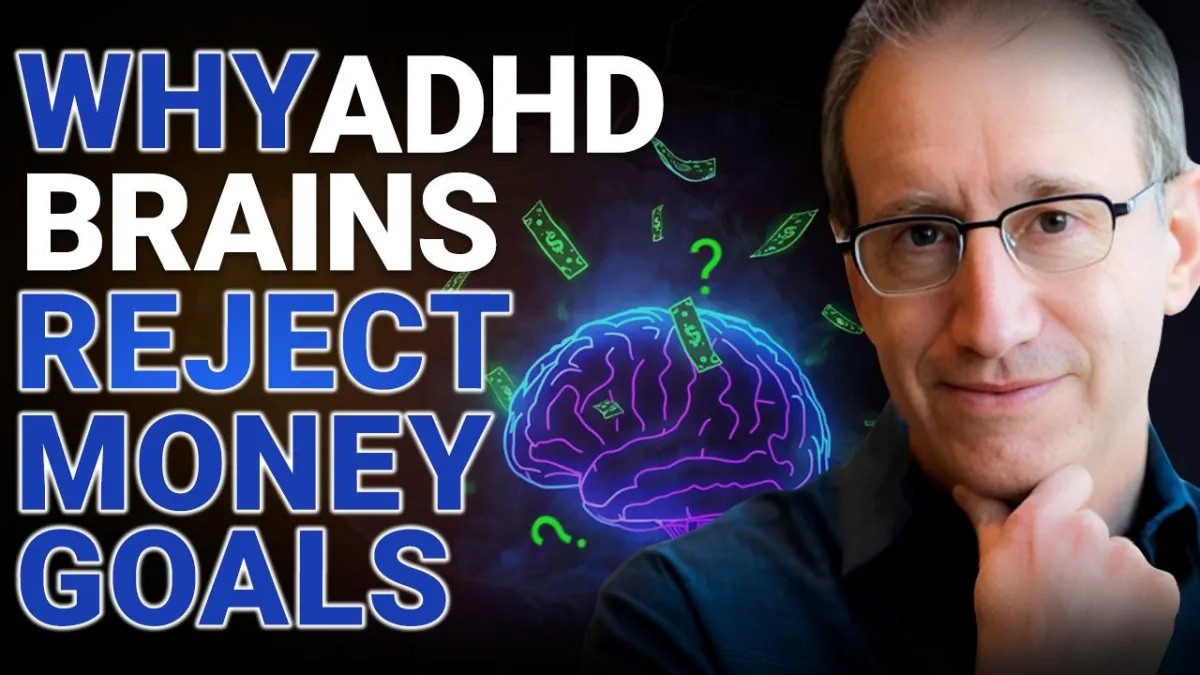Rocket Ship Founder Podcast
Rocket Ship Founder is my weekly podcast dedicated to supporting Founders on their journey. Episodes are short (around 12 minutes) but high value. Each week I dig into a particular topic on Founder life. Special focus on helping ADHD Founders, building great offers and reliable lead flow. Enjoy!
Previous Posts and Podcast Episodes

How Can Entrepreneurs with ADHD Find Support That Lasts
Entrepreneurship is often portrayed as a race for growth, money, and freedom. I’ve lived in that world, and I know how it looks. The story usually follows: set bold revenue targets, chase them hard, and measure your worth by the numbers you hit.
That works for many founders, but doesn’t always work for me or others like me. Entrepreneurs with ADHD face a very different game. Money alone doesn’t always fuel us the way it’s supposed to.
We can have big goals, real desire, and clear intent, yet still be stalled. That gap between ambition and action drove me to explore this challenge more deeply.
I am Steve August, Founder of ADHD Entrepreneur Accelerator and August & Wonder. My own journey shaped this perspective. I was diagnosed with ADHD at 54, after decades of pushing hard in business.
Before becoming a coach, I founded Revelation, a market research startup I grew into a multimillion-dollar exit. Later, I stepped into the role of CMO for a $100M global company, leading 400 people and reporting to a private equity board. On paper, it looked like success.
In reality, I often fought myself, cycling between bursts of hyperfocus and long stretches of lost momentum. That lived experience now fuels my work at the ADHD Entrepreneur Accelerator.
In this article, I’ll share what I’ve learned from my own story and from coaching hundreds of ADHD entrepreneurs worldwide. You’ll see why money alone isn’t enough, how feast-or-famine cycles start, and which systems can create consistency without waiting for a crisis.
Why Money Alone Doesn’t Motivate Entrepreneurs with ADHD
Money is often seen as the driver of entrepreneurship. Build a company, chase profit, and create freedom. For many, that works.
Yet for ADHD entrepreneurs, money alone doesn’t always light the fire. The intention to hit revenue goals is real. The desire is there. But the action doesn’t always follow.
Two Main Triggers the ADHD Brain Runs On
Consequences create urgency. Tight deadlines, bills due, or pressure from scarcity get things moving.
Interest sparks hyperfocus. A new idea, exciting project, or engaging problem pulls full energy.
Outside these triggers, motivation falls flat. After a great month or a big win, the brain relaxes. Instead of stacking momentum, energy slips. Comfort sets in, and action slows until urgency returns.
Long-term goals, like retirement savings or hitting a five-year revenue target, feel too distant. They lack weight in the present. That’s why revenue goals don’t always match actual progress. The brain cares about now, not later.
This isn’t about laziness. It’s about wiring. The ADHD brain doesn’t process rewards the same way. Distant rewards fade, while immediate ones feel real. Recognizing this difference matters. It reduces guilt and shifts focus toward practical strategies.
Entrepreneurs with ADHD succeed when they design systems that match how their brains work. That means short-term focus, interest-driven work, and accountability. With the right approach, action doesn’t rely on crises. It flows naturally, creating consistency instead of the constant chase.
The Problem of In-Between Motivation for Entrepreneurs with ADHD
ADHD entrepreneurs often ride a rollercoaster. They land a client, enjoy a strong month, then lose momentum. Instead of compounding success, they stall. By the time money grows tight, urgency kicks in again. The cycle repeats.
Why This Happens
Urgency drives effort. Scarcity or looming deadlines push immediate action.
Safety weakens the drive. Once finances look stable, urgency disappears.
Distance dulls focus. Long-term targets don’t create enough spark to sustain progress.
This “in-between” zone feels frustrating. It’s not a lack of willpower. It’s how ADHD brains process rewards. The mind craves immediacy. What feels far away rarely inspires real action.
Breaking the Cycle
Entrepreneurs can reduce the feast-or-famine rhythm by focusing on leading indicators. Revenue is always lagging. It reflects past work, not today’s effort. Leading indicators are the weekly tasks that shape future income.
Examples:
Sending proposals
Following up with leads
Writing and posting content
Networking consistently
By shifting to weekly containers, the cycle changes. A week feels close enough to matter. It creates urgency without waiting for a crisis.
Ask yourself: What does a strong week look like? Then build around that.
What This Creates
More consistent growth
Less dependence on stress or panic
A sense of steady progress
When the focus narrows to weekly wins, momentum builds naturally. The cycle doesn’t disappear overnight, but the swings smooth out. Business feels more stable, and confidence grows.
How Entrepreneurs with ADHD can Build consistency
Consistency matters more than ambition. For ADHD entrepreneurs, structure beats sheer willpower. Big goals sound inspiring, but without systems, they fade. The path to stable revenue is weekly commitment, not distant dreams.
Revenue is always a lagging indicator. What shows today stems from work done weeks or months earlier. That’s why entrepreneurs should focus on leading indicators. These are the repeatable actions that build revenue.
Examples of leading indicators:
Reaching out to new prospects
Sending proposals regularly
Publishing content that builds trust
Following up with warm leads
Building genuine partnerships
Framing work inside a weekly container helps. The week is close enough to create urgency, yet manageable enough to sustain. I am asking what I must achieve this week. Entrepreneurs stay grounded.
Hoe to make this stick:
Define 2–3 priority tasks weekly.
Add interest to routine work. Gamify or vary tasks to keep them engaging.
Track results weekly and celebrate small wins.
This system reduces dependence on crisis. Instead of waiting for scarcity to spark effort, action becomes routine. Interest-driven motivation plays a role, too. Adding novelty or challenge to tasks keeps focus alive.
Consistency doesn’t mean perfection. Some weeks fail. What matters is returning quickly. Over time, steady effort compounds. Revenue grows predictably. The ADHD brain thrives when structure, interest, and urgency combine in the right balance.
The Power of Support for Entrepreneurs with ADHD
Trying to handle everything alone is a trap. ADHD entrepreneurs often withdraw when overwhelmed, but solitude slows progress. The better approach is leaning on support.
Co-working and body doubling are powerful tools. Sitting with others, even online, creates accountability. Distraction fades, and energy rises. Tasks that were avoided for days suddenly get finished. This isn’t magic. It’s the brain responding to gentle external pressure.
Pairing this with clear priorities strengthens results. Working beside others feels natural when you know the week’s top tasks. It removes the burden of forcing motivation.
Brain-Friendly Approaches That Work
Use co-working sessions several times a week
Keep goals short-term and concrete
Make tasks engaging through variety or creativity
Stick to weekly containers, not distant targets
This shift requires honesty. ADHD entrepreneurs don’t play by the same rules as others. Hearing peers talk about five-year visions might sound inspiring, but it doesn’t stick. The ADHD brain asks a simpler question: How do I make this week better than last week?
By embracing this mindset, frustration drops. Guilt fades because the system matches how the brain actually works. Progress then feels steady, not forced.
External support plus short-term structure unlocks consistency. It builds momentum without waiting for panic. With these strategies, ADHD entrepreneurs stop relying on crisis and create lasting growth.
Conclusion
Entrepreneurs with ADHD don’t fail because of effort. They fail when they try to run on rules that don’t fit them. The truth is simple. Their brain wants urgency, interest, and short-term goals. Long-term rewards don’t carry the same weight.
That said, this isn’t a dead end. Progress becomes steady with weekly systems, interest-driven tasks, and real support. The feast-or-famine pattern starts to fade. Work feels lighter, and results build without waiting for panic to kick in.
The bigger lesson is this: success comes from building around how your brain works, not against it. ADHD isn’t a block to growth. It’s a different path that rewards honesty, structure, and support. When entrepreneurs design their week carefully, they create flow instead of chaos.
Growth then feels natural. Confidence grows, stress drops, and results last. That’s what makes the journey worth it.
FAQs
What daily habits help entrepreneurs with ADHD stay on track?
Simple habits like planning the next day, using reminders, and setting small wins keep focus steady. Structure builds calm and help progress feel natural.
How can entrepreneurs with ADHD manage distractions during work?
Short work blocks with breaks reduce drifting attention. Turning off alerts and using co-working sessions also makes focus easier.
Do entrepreneurs with ADHD benefit from hiring help?
Yes. Delegating tasks that drain focus frees energy for creative and high-value work. Support speeds progress and lowers stress.
How do entrepreneurs with ADHD handle decision fatigue?
Limiting choices works best. Clear routines for meals, clothes, or tools save energy for business decisions that matter.
Can exercise help entrepreneurs with ADHD perform better?
Definitely, movement boosts focus, mood, and energy. Even short walks or workouts sharpen the mind for the next task.
STAY CONNECTED & KEEP LEARNING
Mastering focus and building a thriving business with ADHD doesn’t happen overnight, and you don’t have to do it alone.
Subscribe to the ADHD Entrepreneurs Newsletter on LinkedIn to get stories, tips, and ADHD-friendly strategies straight to your inbox to help you stay out of overwhelm, reclaim your focus, and achieve your full potential.
Copyright 2025 Steve August Coaching | All Rights Reserved

